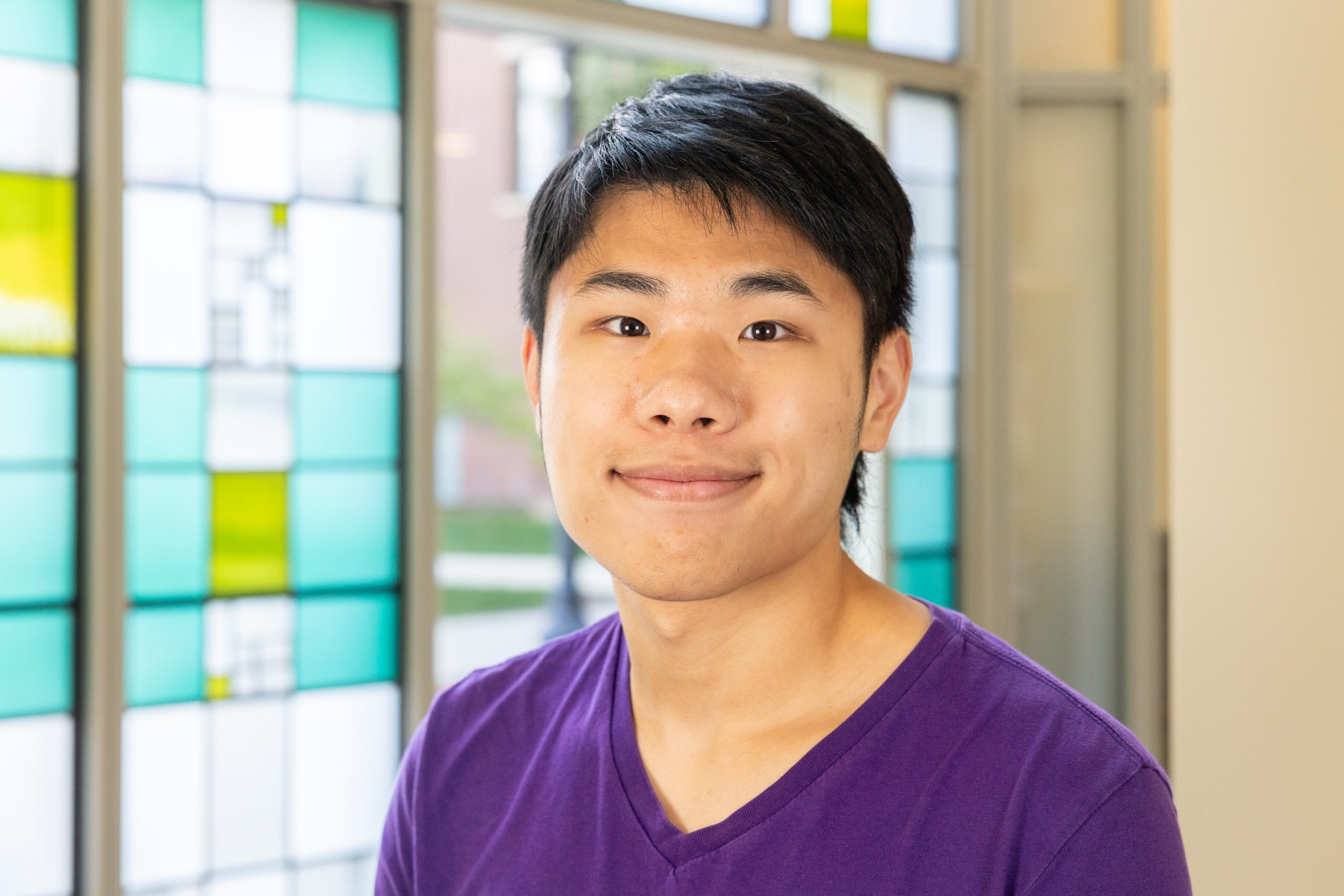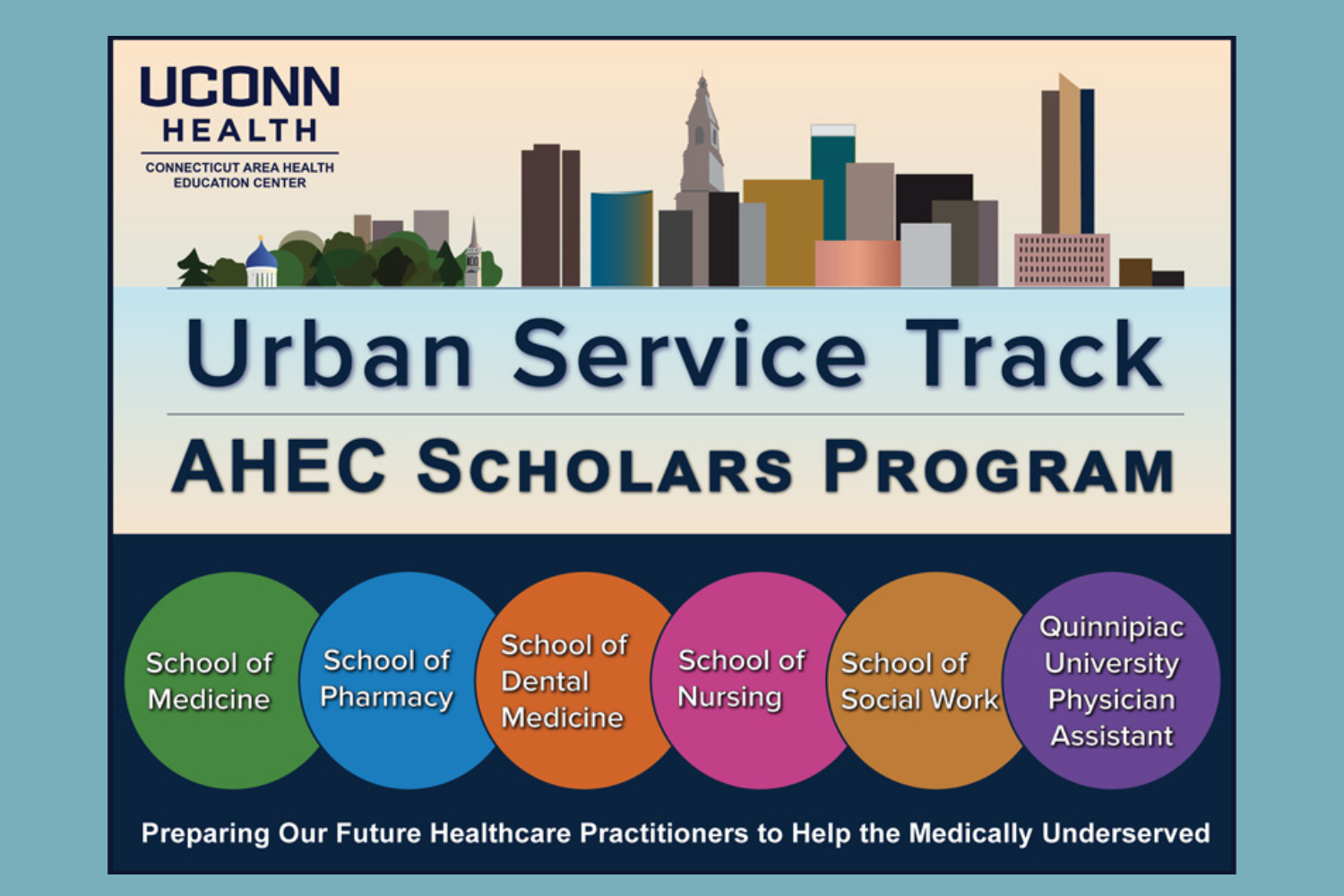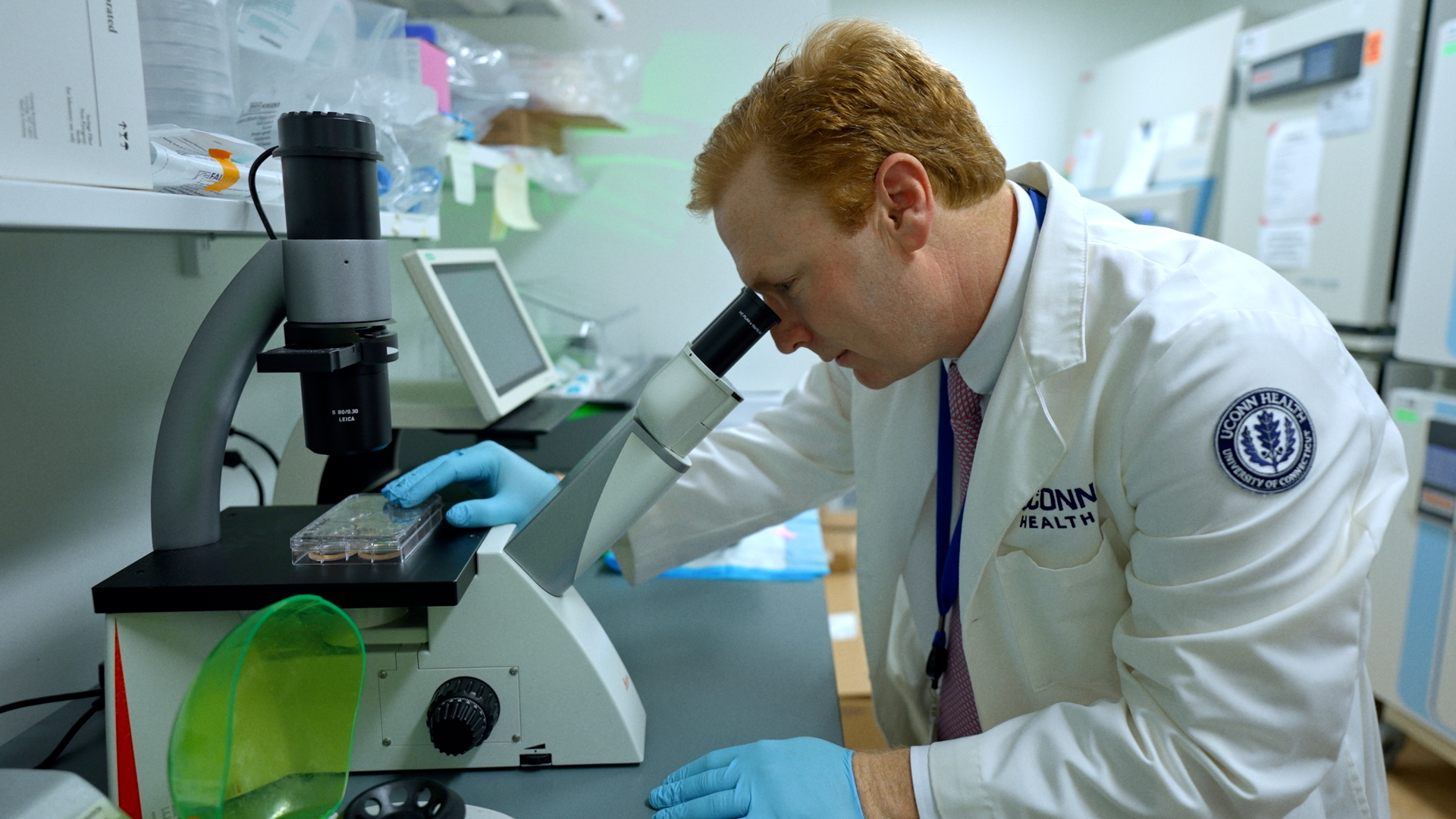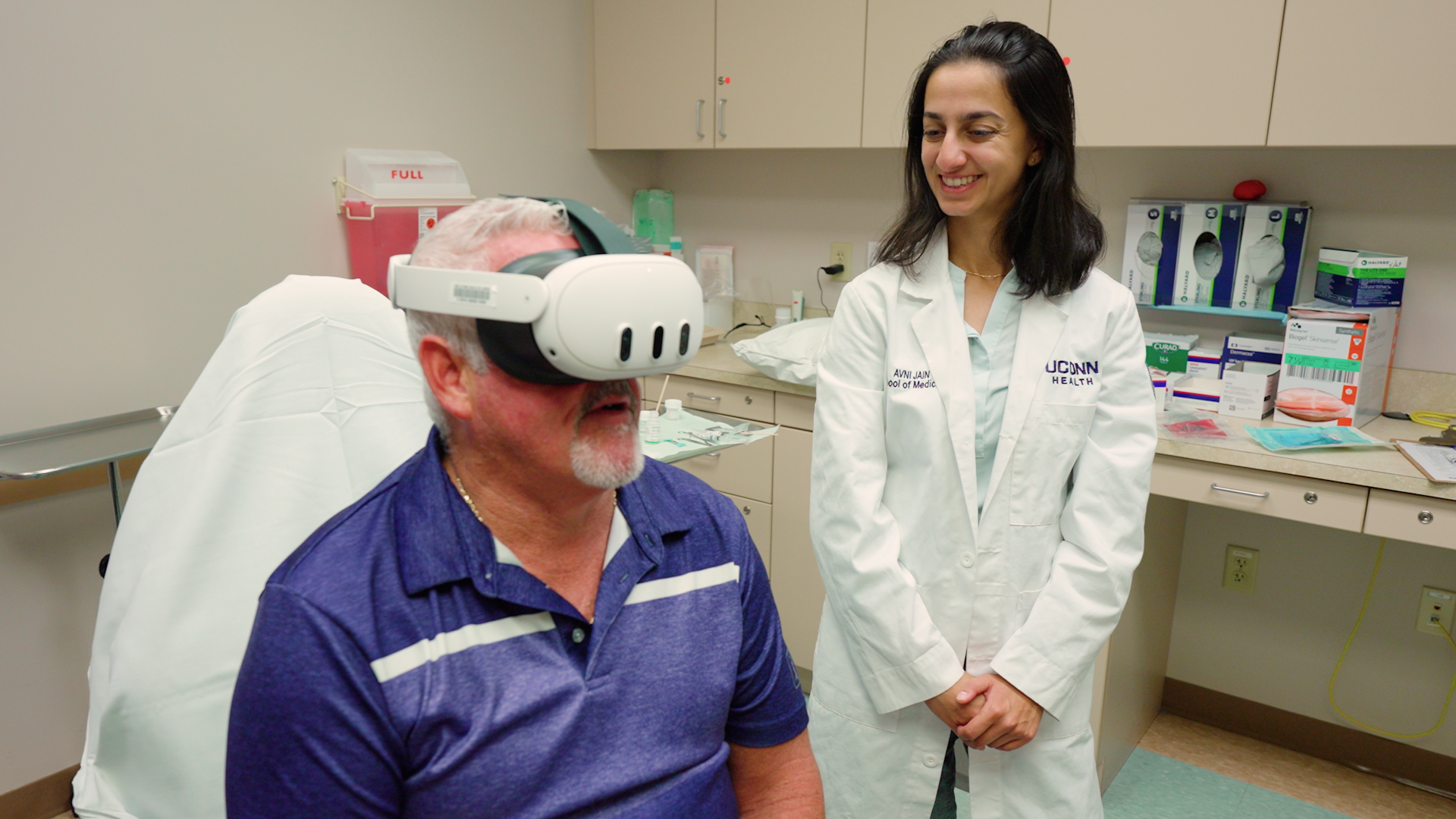Meet the Undergraduate: Stanley Lu ‘26 (BUS)
First-generation college students face unique challenges, from applying to schools, to navigating campus life, to preparing for next steps after graduation. Stanley Lu ‘26 (BUS), a senior majoring in management, knows this firsthand.
“I’m a first-generation student myself, and all my siblings are too – so I know the specific troubles we face, and that they aren’t talked about often enough,” says Lu. “I want to do my part to help other first-gen students succeed. Especially when it comes to job seeking, first-gen students may not have the same amount of support that other students have, or the same network, or the same financial resources.”
Lu is spending his senior year as the DEI Intern for the First-Generation Students Affinity Community at UConn’s Center for Career Readiness and Life Skills (the “Career Center,” for short).
The Career Center offers numerous resources for UConn students. Professional staff can help refine resumes and cover letters, and help with interview prep. Student interns, like Lu, can also provide invaluable support from a student perspective, especially through educational programming.
Lu is especially dedicated to promoting accessible, high-impact career-building experiences for students, like “micro-internships.” For these projects, students are hired by companies on a very short-term basis – often to complete one or two major tasks.
While such opportunities are competitive, they are a boon to students, allowing them to get a taste of work in many different fields to see what they gravitate towards. Additionally, Lu notes, micro-internships are typically paid, making them especially beneficial to students who are working to support their own education.
“It’s a good opportunity for students to build on their resumes if they don’t think they’re ready for a full-time internship yet,” says Lu. “If they’re not sure if they’re going to enjoy whatever career path they’re going down, maybe they can just try it out, and get hands-on experience before deciding. And when they apply for future internships or jobs, they can then talk in their cover letters and interviews about how they have already developed some of these skills.”
As part of his work with the Career Center, Lu has given presentations to various groups on campus, such as the First-Gen Society and the First-Gen House Learning Community. He is currently working on a blog for the Career Center specifically about micro-internships, and wants to start offering more targeted presentations on the topic as well.
Not content to work only from his own experience, Lu is also engaged in research exploring the challenges first-generation students face, and creative solutions other universities have developed to help support this community. At the University of Oklahoma, for example, he found a helpful glossary of terms related to campus life, financial aid, and professional development. He’s currently working on developing a similar document tailored specifically to the UConn community.
“I’m gearing it towards first-generation students, but it will be accessible to everyone,” he says.
Lu first got involved with the Career Center from the other side – as a student user of its services. When he first applied for the School of Business in his sophomore year, he says, he was unsure about the process, and “just threw together a resume and cover letter and submitted it.” After he was rejected, he was determined to “use all my resources” in his next attempt. He attended various info sessions at the Career Center and had his resume and cover letter workshopped by the professional staff. On his second try, he was rewarded with acceptance.
Last year, when he saw the opening for his job position at the Career Center, he was eager to apply and pay it forward.
“I’m someone that’s very interested in supporting underrepresented people and making sure everyone has the same access to resources – and is aware of all the tools they have available,” says Lu.
As he looks toward his graduation, Lu is exploring roles in human resources or career counseling, building on his experience at the Career Center.
“I love helping people hone their skills and educate them on what employers are looking for,” he says. “Also, after they’ve landed the job, I am also passionate about supporting people and helping them prevent burnout and practice resilience.”
Month of Discovery
October is the Month of Discovery, when undergraduates are introduced to the wealth of research and innovation opportunities at UConn. This month, enjoy profiles of outstanding undergraduate innovators on UConn Today, attend a full slate of programming on campus and online, and register for Discovery Quest to launch your undergraduate experience to new heights.
Students interested in learning more about research and innovation opportunities at UConn can check out the series of events offered as part of the Month of Discovery. The Experience Innovation Expo (Monday, Oct. 27) at the Werth Institute is a great opportunity to get inspired and discover the wide range of programs for entrepreneurship, innovation, and creativity at UConn.
Latest UConn Today
- Raising the Bar in Healthcare Leadership TrainingUrban Service Track/AHEC Scholars Program is based at UConn Health.
- After Receiving Internship Offers From The Big Four, Accounting Alumna Isabella Williams ’25 Is Thriving at PwCUConn’s Accounting program has a strong track record. Some 91 percent of UConn accounting majors had a full-time job or attended graduate school within three months of the 2025 graduation.
- In Memoriam: Corina Morris, CLAS Academic AdvisorThe College of Liberal Arts and Sciences remembers longtime academic advisor Corina Morris, who supported generations of UConn students with compassion, care, and a deep commitment to their success
- UConn Health Minute: Precision Heart Failure CareHeart failure affects more than seven million Americans and for many it’s not due to bad habits such as smoking or not eating right. UConn Health and The Jackson Laboratory are taking a new approach and focusing on personalized care based on a patient’s genetic profile.
- With Commercial Wind Comes Rising Community Home Values, UConn Researcher FindsCommunities see a 3% increase in property values overall once a wind energy installation becomes operational
- Comfort in 3D: Study Finds Virtual Reality Eases Patient AnxietyEven a simple skin procedure can make someone a little nervous. At UConn Health, a new study is helping patients find calm in an unexpected way – through virtual reality.













